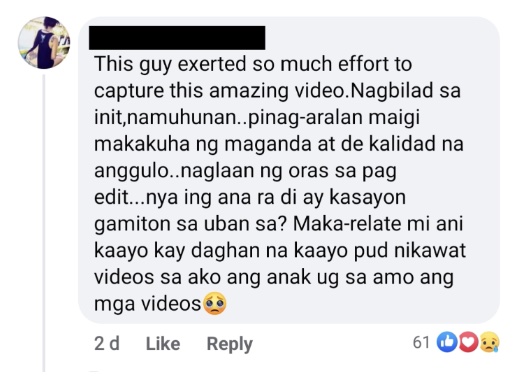Make-up transitions are all the rage right now, with numerous social media creators posting their own versions of the said trend in a bid to go viral. It all started with the ‘Asoka make-up transition’ challenge, which jumpstarted the trend, and which still continue to gain millions on views on TikTok and Facebook Reels. The challenge has since exploded with others using the same concept, but with a different background music, just like what Marian Rivera did using the Marimar theme song.
Recently, the song “Piliin mo ang Pilipinas” by Angeline Quinto has taken over the trend, in which content creators showcase the rich culture of the Philippines while showcasing their own creative transitions. Joining the said trend, Whamos Cruz, a social media personality, also uploaded his take with videos of Philippine festivals that promote the beauty of Philippine islands.
Jak Seventy-Three, a video content creator, posted a video comparison of his work and Whamos’ video, claiming that his videos were used without his consent and permission. “Whamoscruz stole my videos #proudpinoy,” he wrote.
Jak Seventy-three’s video gained attention from other social media users, who have started tagging Whamos to tell him to address the issue because they believe that more than disrespect, it is content theft. Others also pointed out that the behavior of Whamos should not be tolerated because they are clearly exploiting others’ hard work without acknowledging the owner of the contents they use.
Some are saying that the original owner should file a case against the social media personality because he used these materials to gain money through viewership and ads, and that is something that cannot be outdone through an apology or simple “shout out.”
Although the purpose of this ongoing trend is mostly for entertainment purposes, this incident serves as a good reminder to always seek permission from original creators when co-opting materials, or better yet–to provide remuneration for the materials used.
Since the call out, Whamos has credited the video creator in the comment section.
On May 6, Whamos posted a video and discussed the recent controversy he was involved in.
He questioned the severity of the mistake and said, “Gaano ba kasama yung ganong klase ng pagkakamali? [How grave is that kind of mistake?]”
The content creator said that the two parties could have resolved the issue better if the owner had messaged them privately, stating, “’Yung sa akin lang sana, nag-message na lang, hindi na sana nag-post sa social media. Gusto ko lang linawin kasi ayoko nang masabihan na magnanakaw ako [For me, it would have been better if they had just messaged privately, instead of posting on social media. I just wanted to clarify because I don’t want to be called a thief anymore.]”
Furthermore, he clarified that he’s not the one at fault for using the uncredited videos.
“Actually hindi ho ako yung may kasalanan dito. Hindi po ako ‘yung nag-install nung video na ‘yun. Ang nag-install po ng video na ‘yun sa entry ko is yung editor ko [Actually, I am not the one at fault here. I am not the one who installed that video. The one who used those videos in my entry is my editor],” he stated.
It is unclear whether the two content creators have struck a deal regarding the issue.
Other POP! stories that you might like:
Filipino X (Twitter) user criticizes activism in the Philippines, sparks online debate
Plagiarism accusations surrounding Eraserheads’ classic ‘Alapaap’ resurface
Filipina creates AI platform that preserves nearly extinct Filipino languages
Filipino visual artist, journalist among the finalists for this year’s Pulitzer Prize


